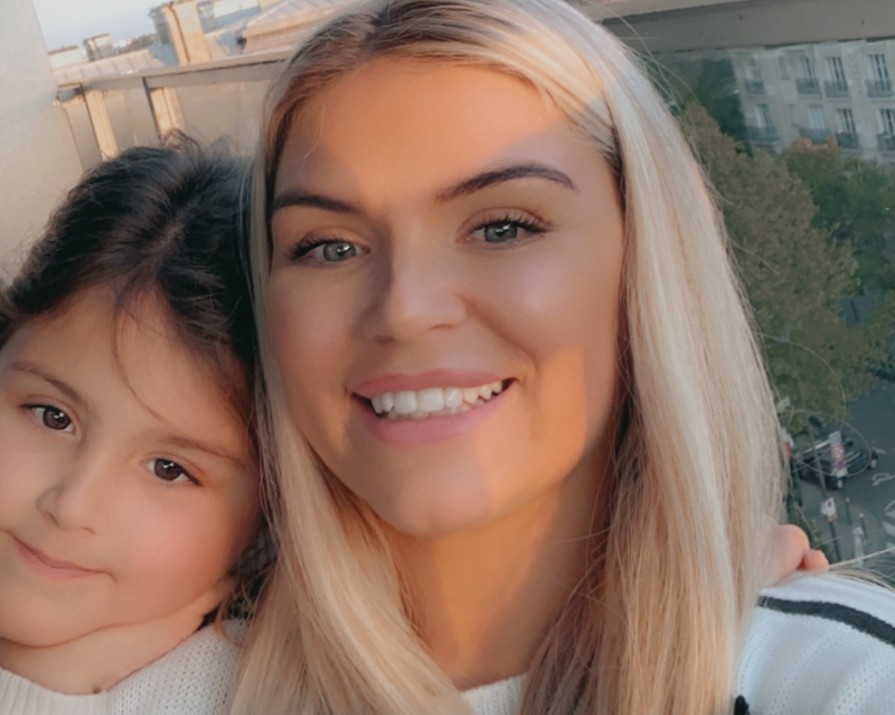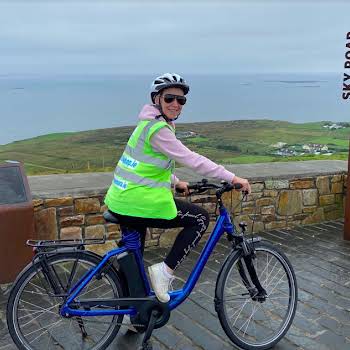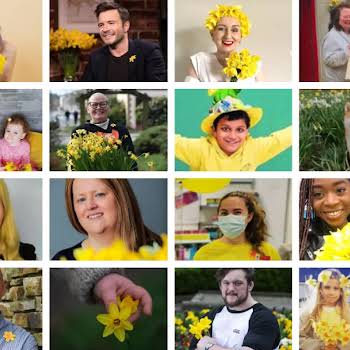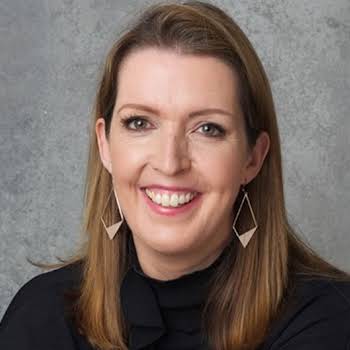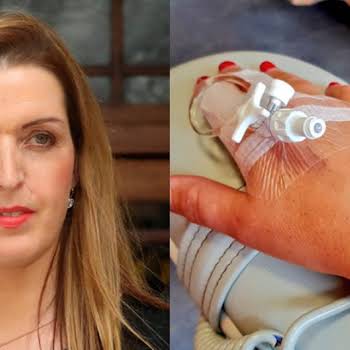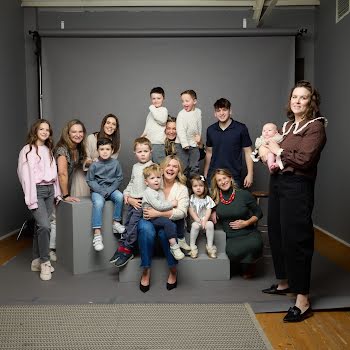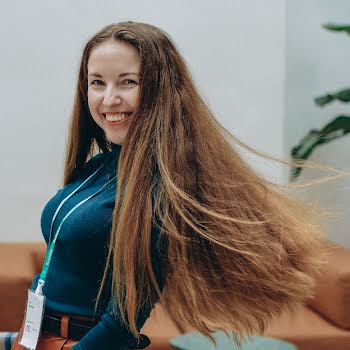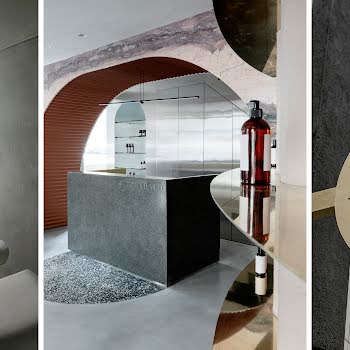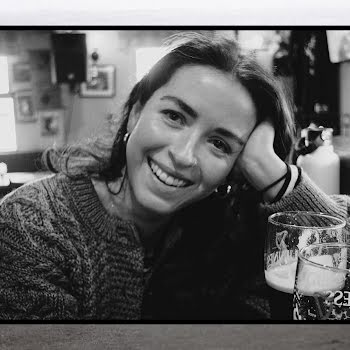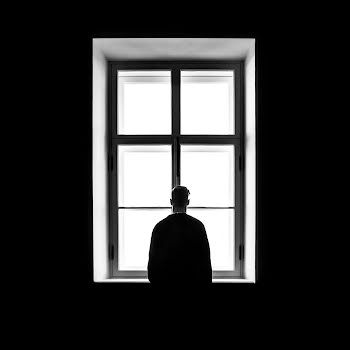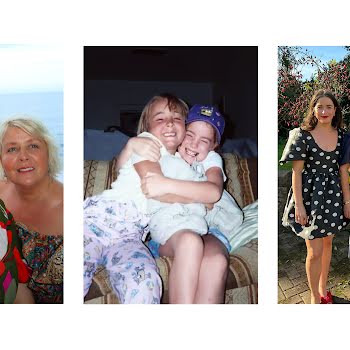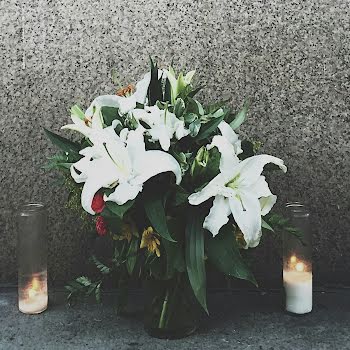‘I planned my own funeral and worried I wouldn’t be there for my daughter’
By Meg Walker
21st Mar 2023
21st Mar 2023
Ahead of Daffodil Day this Friday, a young mother shares her story of cervical cancer.
Bronwyn Reidy was just 25 when she was diagnosed with cervical cancer. A single mother living in Waterford with her young daughter, she had to travel to Dublin for treatment and didn’t know how she would manage. She turned to the Irish Cancer Society’s Daffodil Centre for help. Ahead of the charity’s most important Daffodil Day yet on Friday, March 24, Bronwyn shares her remarkable story and urges others to get checked.
I was watching a documentary in 2019 about Laura Brennan, a young Irish woman like me, who died earlier that year of cervical cancer at the age of 26. I was 25 – one year older than Laura was when she was diagnosed. It was like she was talking directly to me through the screen, urging me to get a smear test.
It was November when I went to my GP. The receptionist told me I needed to book a smear online through CervicalCheck, so I started to walk out the door, but I didn’t want to wait… something was telling me I needed to get this done now. So I went back in and asked to speak to the doctor directly, and he saw to it straight away. When completing the smear, he seemed worried and called two other GPs in to examine me. There was a visible tumour. I was referred to the colposcopy clinic, but that had a waiting list of around 12 weeks. That night, I became unwell, was vomiting and weak, and went straight to University Hospital Waterford A&E. I told them about my smear that day and a consultant came down. I was told I had a massive tumour.

They asked me if I had any children. I said yes, a daughter (Millie, now five, who was just two at the time). I was told right then and there that I wouldn’t be having any more due to the nature of my diagnosis and the treatment required. I didn’t know what was going on… it didn’t register with me at all.
I was told I had cervical cancer, and wouldn’t be treated locally. I’d have to travel from Waterford to St Luke’s in Dublin. My treatment would begin at the start of December. I was scared and didn’t know what I was going to do.
The next steps: finding support
The hospital was short on liaison nurses at the time of my diagnosis, so I turned to the Daffodil Centre. Part of the Irish Cancer Society’s cancer support service, Daffodil Centres are staffed by specialist nurses and trained volunteers who provide information and support to anyone affected by cancer. Mary the Daffodil Centre nurse talked me through everything and what to expect. Without Mary, I probably wouldn’t have coped at all – I had no idea what was going on. Cancer had never affected anyone in my family before, so it was a lot to take in. As a young woman, my first thought was, am I going to lose my hair? She was able to answer all of those questions for me. I then wondered if I’d have to travel up from Waterford to Dublin every day. Mary put my mind at ease and said not to worry, and I ended up being sorted for accommodation.
The support I got in St Luke’s was amazing. I remember my first day arriving at the hospital and walking in the door and the initial fear I felt. The people all around me were so sick, had lost their hair, and there was nobody my age. The support from the other patients was so reassuring. I was lucky enough to be on a ward with other women and we helped each other through. I had radiation daily, nine hours of chemotherapy on Mondays and then had brachytherapy. It was intense.
The hospital staff were amazing, from the tea and dinner ladies to the nurses and consultants; even the cleaning staff would always stop and have a chat and ask if I needed anything. The additional support the hospital staff provided was incredible, from holistic treatments to hairdressers coming in to try and make us feel good at the worst time in our lives.

I was so lucky with the support network I had around me, too. My parents, Chris and Caroline, were by my side every step of the way. They stayed in B&Bs and hotels and would make their way to the hospital every morning and sit there all day, every day. I’d always know when my dad was coming – I could hear his shoes from the top of the corridor walking down to my ward and that would give me a chance to get myself together and try and perk myself up. Seeing my dad cry was really tough – it broke my heart to see how much he was hurting. My mam is the rock of our family and has been through so much herself. She’s always there for me and my brothers and sister. I couldn’t have gotten through everything without her. My sister Edwina stepped in and looked after Millie along with her own kids and I’ll be forever grateful for that.
Some days it was really tough. I didn’t want my family and friends to see how sick I really was. As I was in Dublin during the week, I didn’t see anyone from home; and at the weekends, when I went home, I was so exhausted.
Added worry: the hidden costs
Being a single mother, having to take time off work to focus on getting better, and dealing with the travel back and forth, the financial worry was unimaginable. I had planned my own funeral in case things did come to the worst and was worried I wouldn’t be able to pay for it or leave anything behind for my daughter. Money was such a huge, stressful pressure in the back of my head the whole time while I was focusing on trying to stay alive. Mary from the Daffodil Centre connected me with supports and kept in touch the whole time.
Nobody ever speaks about the financial side of cancer, but the costs were massive. I spent thousands – coming out of savings, from my parents. Looking back, I’d say between travel, accommodation and everything else that went with it, I spent about €5,000. Driving up most days cost me €80 to put petrol in the car. The little things all added up. I moved back in with my parents, but had my own house to keep up, as well as my daughter’s crèche fees. Thankfully, I’m out the other side of it now, but it was a crazy time.
Moving forward: life post-treatment
I finished my treatment just before Covid hit. I was thankful I didn’t have to deal with treatment while all that was happening, but I still found lockdown really hard – I went from being wrapped up in cotton wool in St Luke’s, where they checked on me 24/7, to nothing – no appointments, no doctor or nurse checking in on me. It was really hard mentally. I went back home to my parents’ house to live for a while until I got back on my feet so we were all in the same bubble. That helped. When I went back to work, I was able to work from home part-time, but I did feel I needed to go back to an office for my mental health – I was eager to get some sort of normality back in my life. But lockdown did have its positives – I got to spend so much time with Millie, making up for lost time and just chilling out together which was so lovely.
As you can imagine, being told at 25 that I wouldn’t have any more children was devastating, but Millie is my world. We are best friends and I’m so grateful to have her. Thankfully, she was so young when I was diagnosed that she didn’t understand. But she associates Christmastime with me leaving, as that’s when I left for my treatment. I never brought Millie to the hospital. It’s an environment I didn’t want her to be in. I tried my best to protect her from it. When she’s old enough, I’ll explain it all to her properly. She knew mammy was a little bit sick but she loves telling people I’m all better now.

I would say the aftermath of treatment is almost harder than the actual treatment. I had such an intense treatment plan that it has so many after-effects on the rest of my body. I was in survival mode going through treatment, so I think it’s only mentally hitting me now. The Solas Centre in Waterford are great and they offer so many different types of different supports which I availed of. I have a really good group of friends that check in on me all the time and who I can talk to. I tend to put on a brave face and they know that, so sometimes a glass of wine and a good chat really helps. Everyone always gives out to me for taking pictures, but I love making memories and looking back on them.
I went back to work not long after my treatment and I’ve been working full-time since. Some days it’s hard – I can be in pain from the after-effects of treatment – but I work with a wonderful group of ladies and they are always there for me too and help me when needed.
Life is so different now. I appreciate life so much more and live every day like it’s my last. I used to be such an overthinker and worry about stupid things. Now, I just enjoy life with Millie and am thankful for my family and friends. Millie and I plan to travel as much as we can. We love a girls’ trip and went to Paris last November, just me and her, and it was so special. We made memories that I will cherish forever.
Looking back: thoughts and advice to share
My advice for anyone who is faced with a diagnosis is that there is no control over cancer – not everything will go to plan, so keep that in mind. Bring somebody with you to your appointments as well as a notepad and pen – I always had my mum with me, as I just went into a state of shock, and she would take notes and we could discuss it later on and process it properly. The one thing I always said to myself was to keep my head in the right frame of mind – it’s so important to stay positive. The worry of not getting treatment at home was terrifying at first, but with the support of my family, we made it work.
For everyone else, I’d urge you to please listen to your body. If you suspect something is wrong, go with your gut and get it checked. Your health is your wealth and should always come first. Book a smear test – it could save your life.
Personally, I’d love to see the age of CervicalCheck lowered. I think the threshold of 25 is far too late and we should be encouraged to get checked sooner. If the HPV vaccine had been available to me, I would have had it in a heartbeat, but it only became available to girls in first year in 2010, so I just missed it by a few years.
Finally, I would simply say that life is short and precious so live every day like it’s your last. Make memories, tell the people in your life you love them, and most importantly, be kind – it costs absolutely nothing.

Here’s what you can do to help
Please support this year’s Daffodil Day on Friday, March 24, which raises much-needed funds to support the Irish Cancer Society’s vital free services such as drives to and from cancer treatment, the Freephone Support Line and Daffodil Centres staffed by experienced cancer nurses, the Night Nursing service providing end of life care, and counselling for anyone affected by cancer. Donations also provide funding for state-of-the-art cancer research and life-saving cancer trials.
You can make a donation at cancer.ie. For more information, visit cancer.ie/daffodilday.











